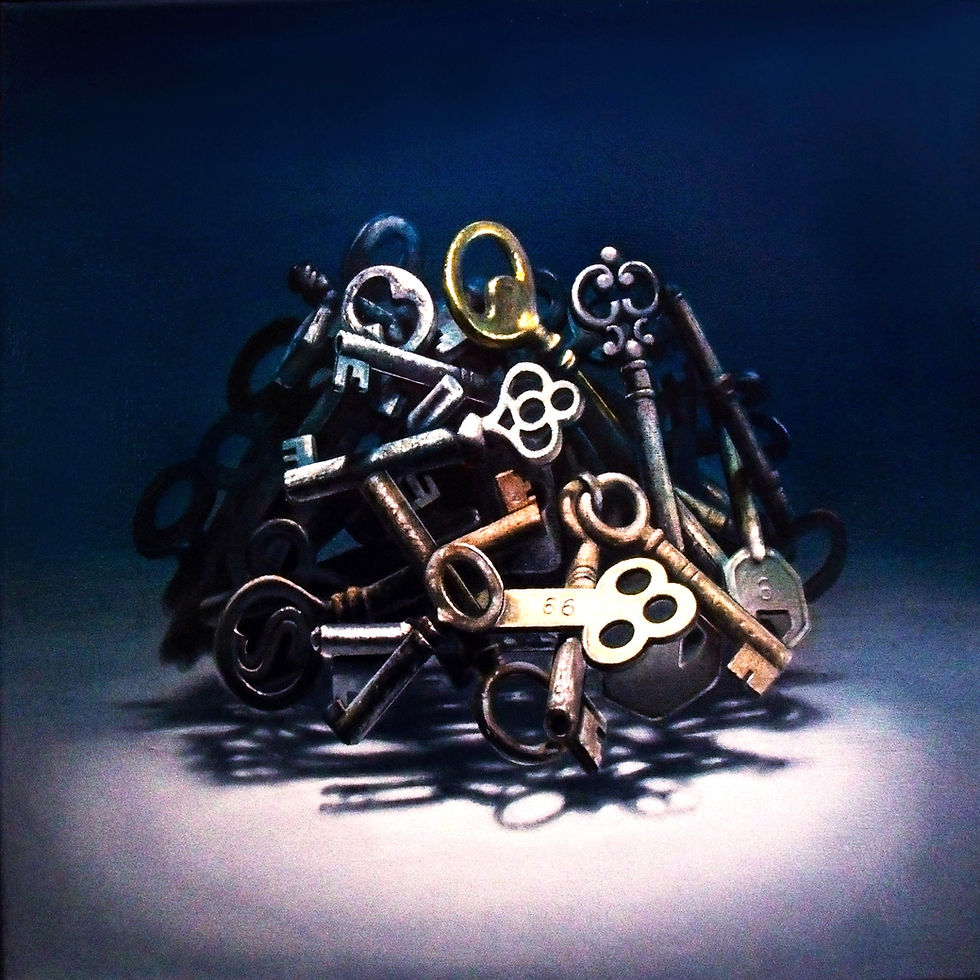The meanings of things
- Phil McLoughlin

- May 3, 2020
- 3 min read
Updated: May 16, 2020

A favourite theme of Alan Watts was how 'civilization' had led us to confuse symbol with reality. Our fascination with naming, describing and measuring 'the world' had displaced our direct experience of the world itself. Our attention is so locked into numbers and concepts, that we become hallucinated with the notion of a so-called "external" world: a cluster of "objects", separate from us, which we "encounter".
We believe that we have come 'into' the world instead of 'emerging' from it. Fifty years ago Watts was pointing out that we were "fouling our own nest" and in "imminent danger of self-obliteration". Although his work was concerned mainly with mysticism and Oriental philosophy, he understood the "nitty-gritty" problems of economics, technology and everyday life. He might well be on the short-list for patron saint of Extinction Rebellion
All human life is lived among ‘things’. Isolation exists only in our imagination. We can no more escape the world and its supposedly, inert and lifeless 'things', than we can walk away from our own shadow.
Our home is blessed with ‘things’ - the product of my wife, Poppy’s, lifelong passion for the curious and collectible. Small or large, all are priceless; layered with stories, our own and countless unknown others; a store of values that puts them beyond the reach of any assessor.
Poppy has always said that we do not own these things but are merely borrowing them. For now we share our life with them – and they with us, in their unique, staring fashion. One day we shall be gone but they will remain, silently awaiting the next borrower.
Some of these 'things' may carry our stamp but these are insignificant imprints. For a short time, a line may trace itself back to us but soon that will fade and we shall fall from the provenance. What can never be erased is the light touch or simple gaze that connected us to the 'thing' in the first place.
Through this connection we become part of its history: linked with countless others who, like us, were involved with it: from imagining its creation; through producing the raw materials for its making and the various stages in its construction, production or creation; to the complex logistics involved in putting it out into the world. Over time, countless hands will have been involved in buying and selling, valuing and gifting, losing and rediscovering, this truly remarkable 'thing'.
The Japanese psychotherapy Naikan involves meditating on our relationship with the myriad 'others' who have helped make us who and what we are. We can - indeed should - extend our indebtedness beyond close relationships to the countless numbers of people who helped put a floor under our feet or a 'masterpiece' on our walls. However long we spent, we would never be able to identify - and thank - all those hands and minds who, in one way or another, shaped an aspect of our lives.
This web of connectedness draws us into the story of the 'thing', whether we realise it or not. We become bit players in the cast of thousands who contributed to its inscrutability.
As I gaze around this room I often wonder who is watching whom. When I handle some ‘lifeless’ thing, its story pulses through me. It is difficult not to be impressed by such a silent blessing.
It is easy too, to realise one's insignificance - which is another kind of blessing in itself.
Copyright - Phil McLoughlin 2020.




Comments